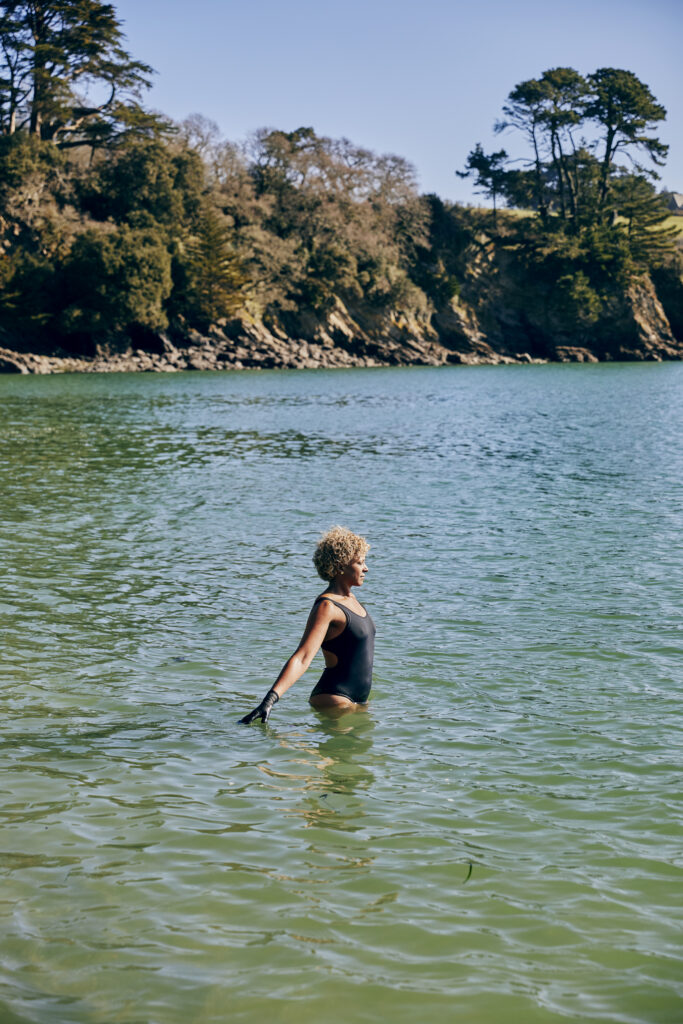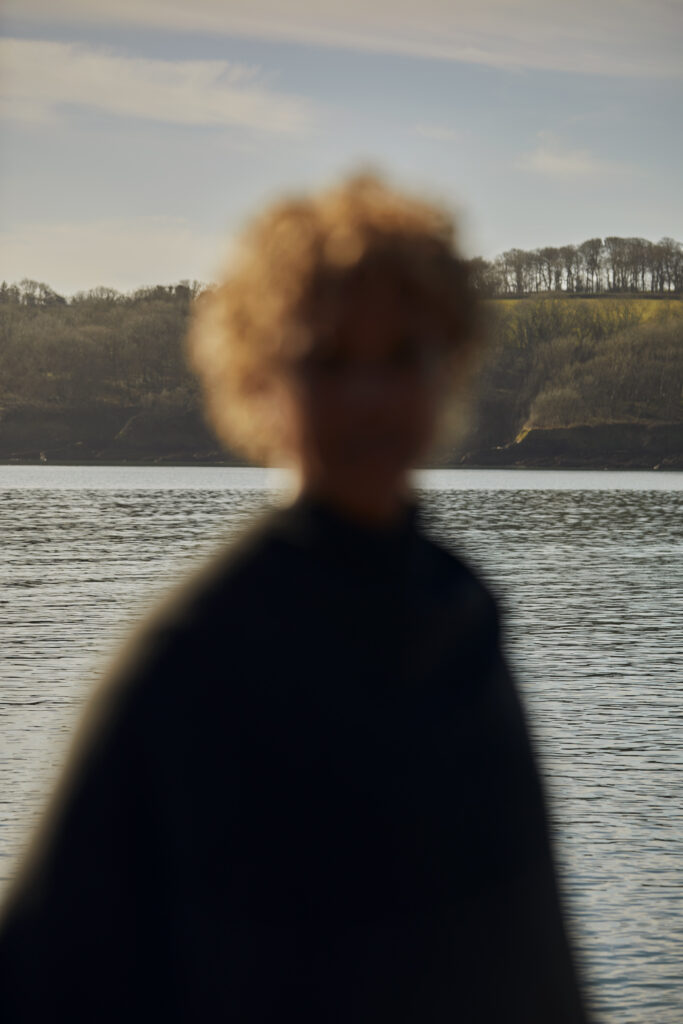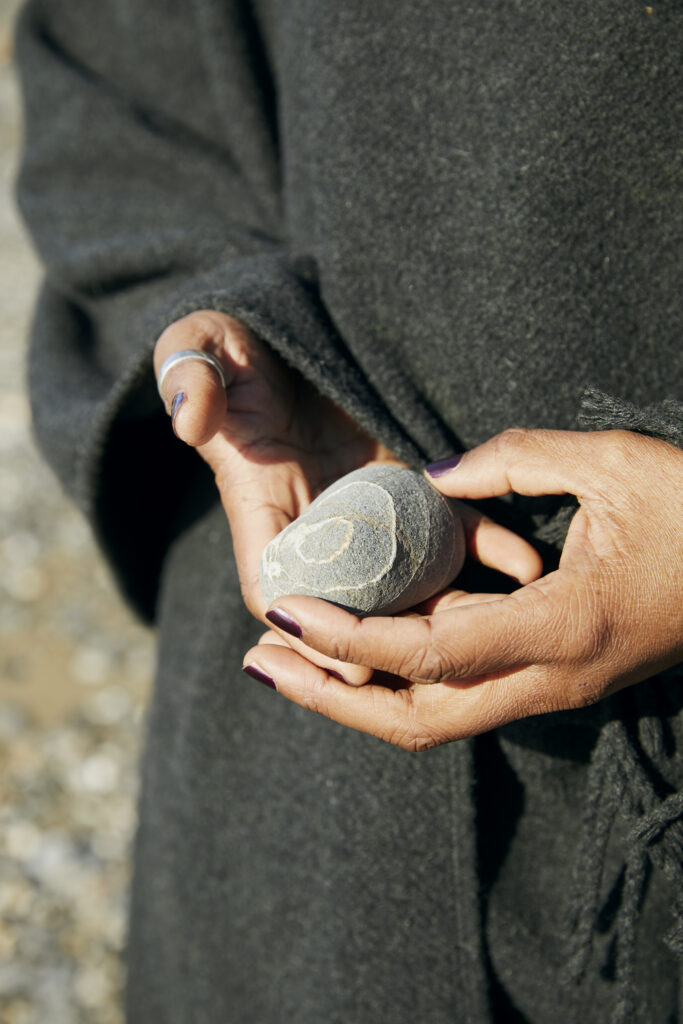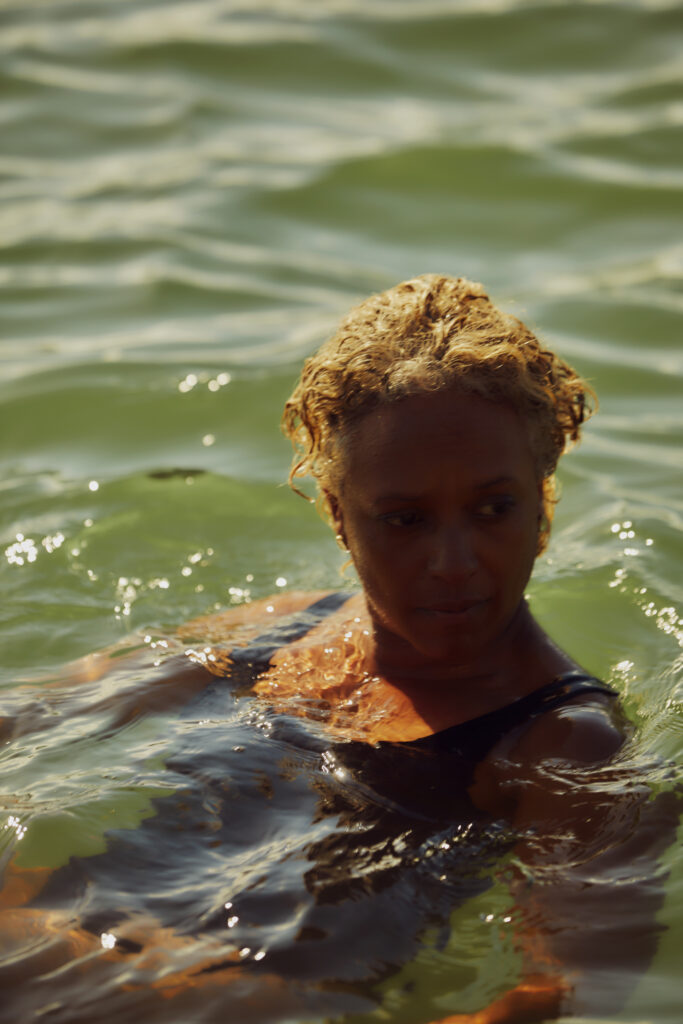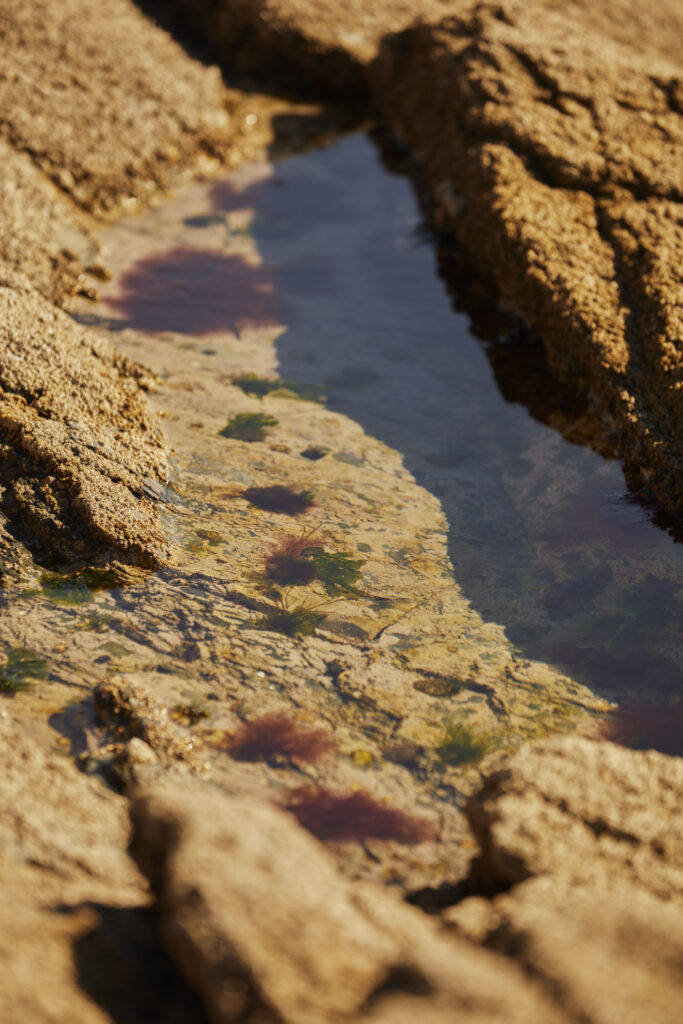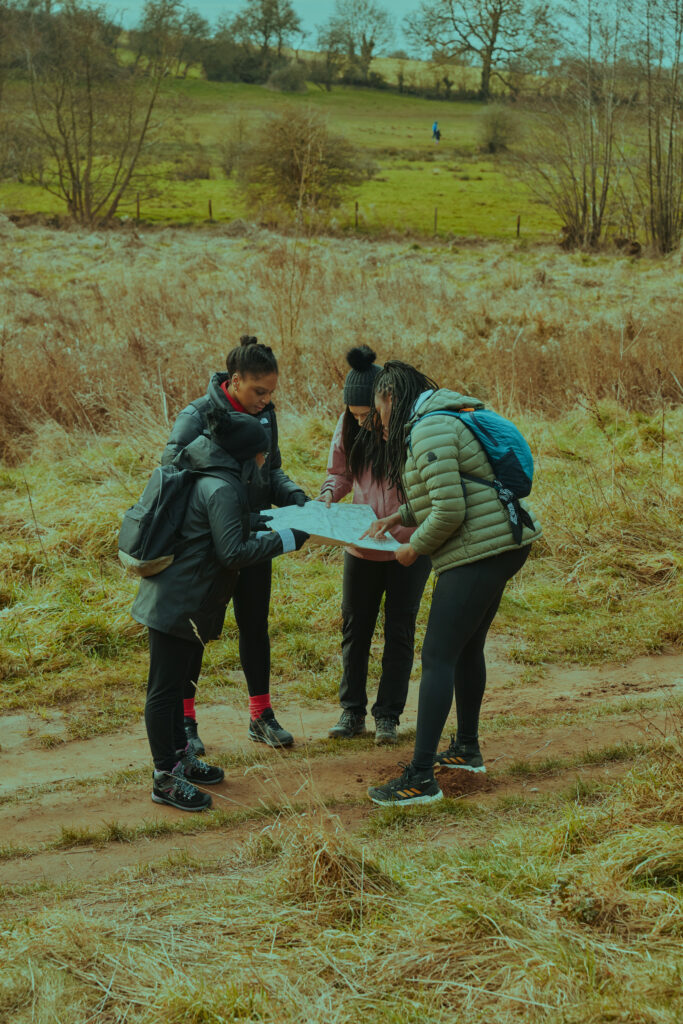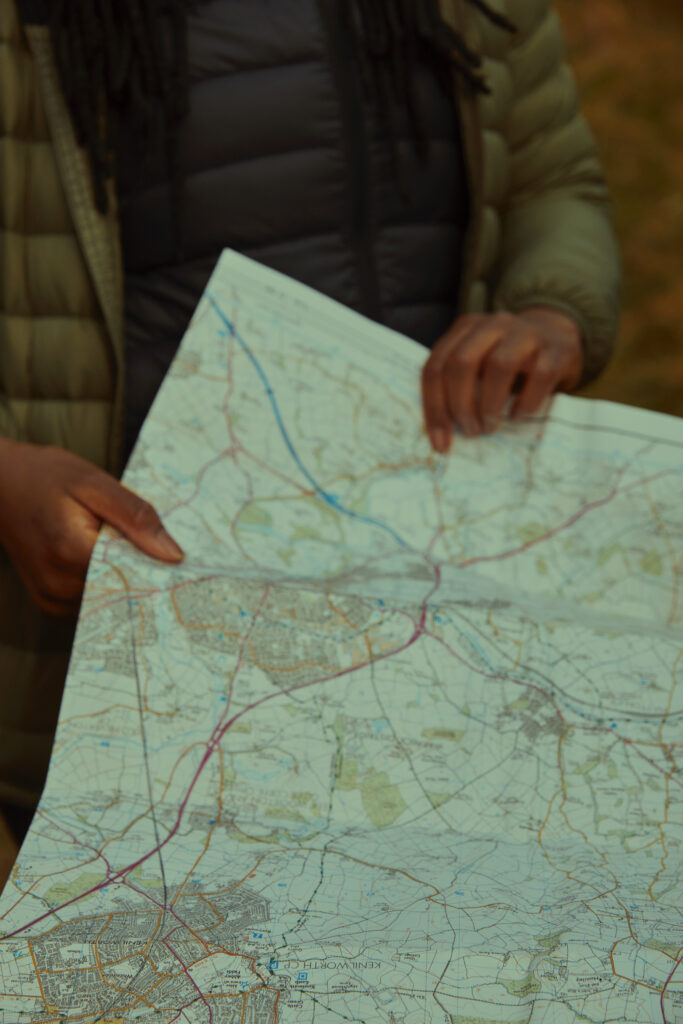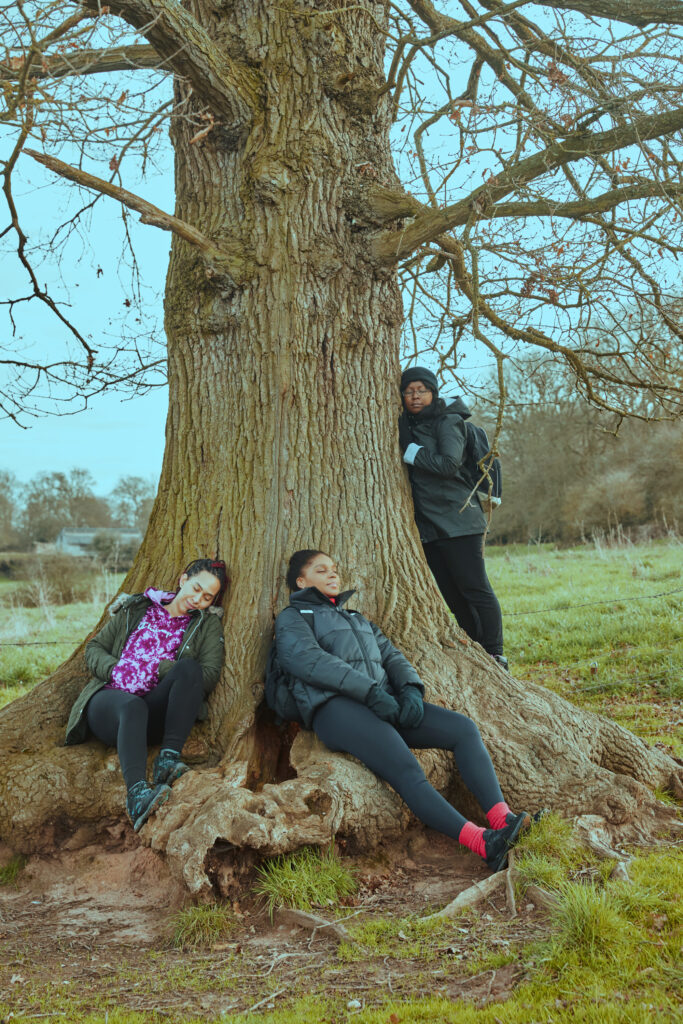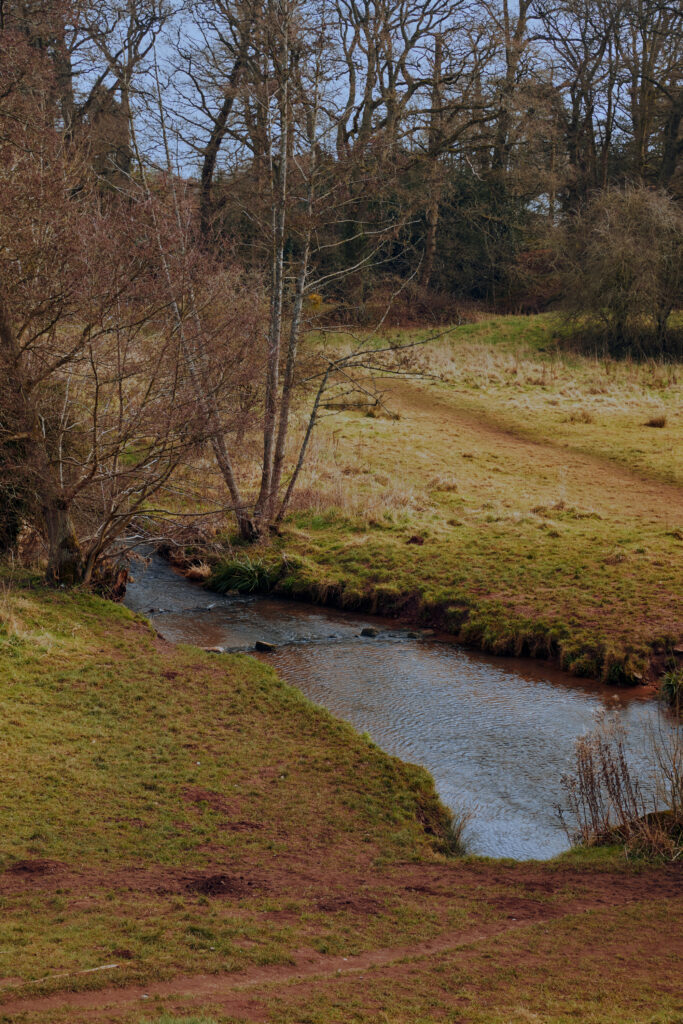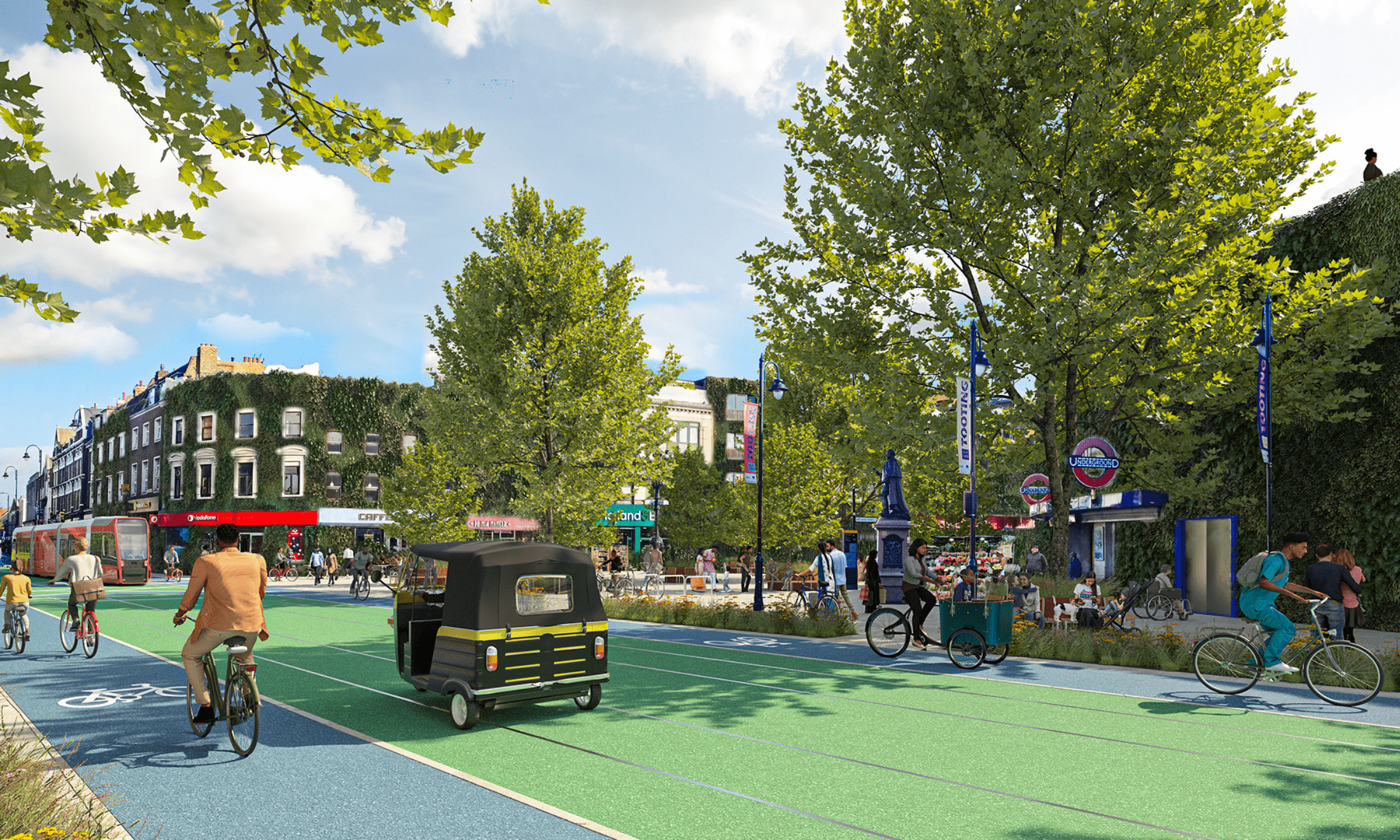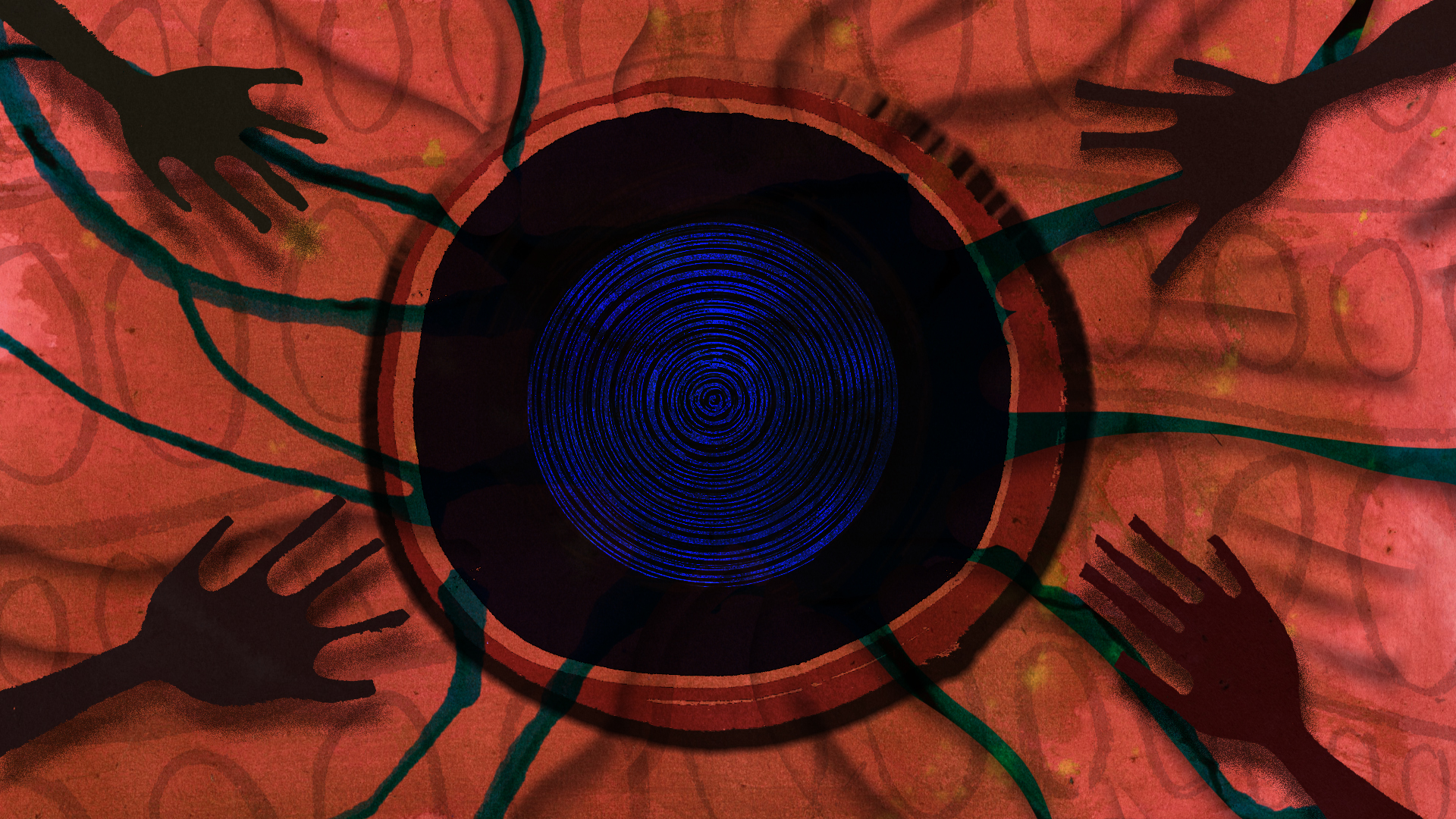
Photography by Emli Bendixen
Nature as a second language
A photo series following biologist and TV presenter Gillian Burke and Steppers founder Cherelle Harding as they explore and connect to the natural world.
Emli Bendixen
30 Apr 2022
It’s a bright sunny morning on a beach in Cornwall, England. Gillian Burke, biologist, author and TV presenter best known for appearing on Springwatch on BBC Two, is resting on the large trunk of a fallen pine tree that stretches across the ash-grey pebbles. I’ve come to meet her as she goes for her morning swim in the sea, a ritual she picked up during lockdown and has maintained ever since.
We watch as other swimmers enter the sea, most in wetsuits but a few, like Gillian, in regular swimming costumes with added neoprene caps, gloves and boots. Some enter in groups, calling excitedly across the still water while others savour the moment of solitude, quietly gliding across the horizon, only their heads visible above the surface.
Being comfortable and connected to nature is a privilege in itself. It requires you to have the time and space to explore, to have access to the outdoors and perhaps a way of affirming what you’re seeing, smelling and touching. Gillian grew up in close proximity to nature while Cherelle Harding, the founder of the walking group Steppers, discovered the outdoors as a young adult. Both have found immense joy and energy from the countryside and describe their journey into the wild and some of the ways others can join them. This piece seeks to celebrate the joy and peace that can be found in the outdoors.
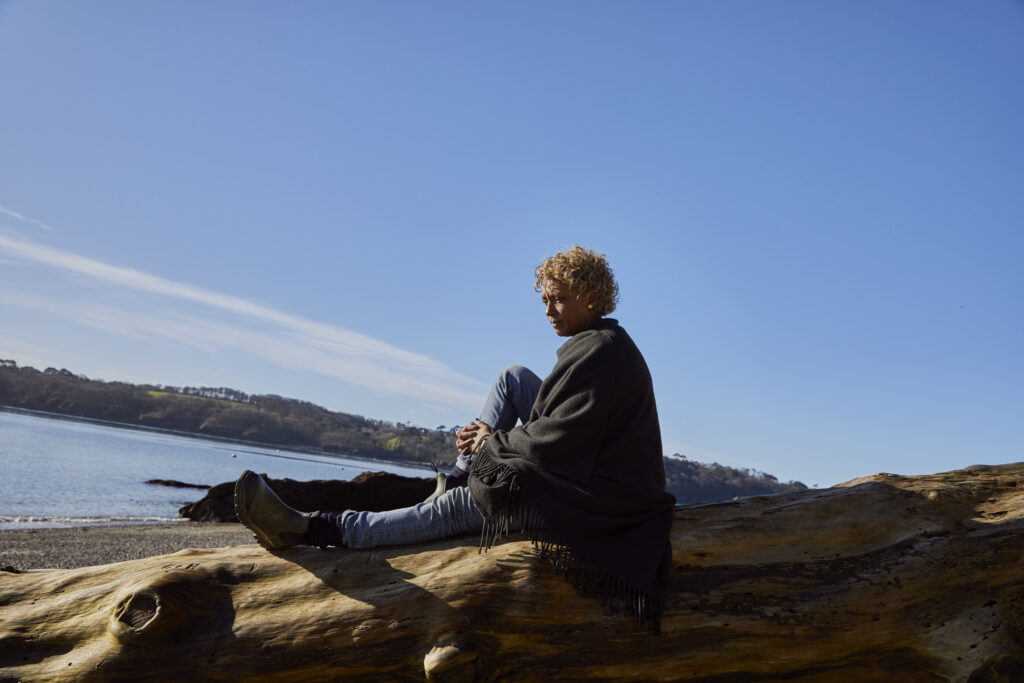
Growing up in newly independent Kenya in the 1970s, with summers in the Seychelles and days spent playing outdoors, Gillian’s childhood was full of natural experiences, especially by the sea where her father encouraged her to swim. “The things I played with, the toys available, were leaves, sticks, ants, termites, beetles, grass, flowers, stones and mud.”
“I have no idea what it feels like to climb an oak tree in the way I know exactly what it feels like to climb the monkey nut tree of my childhood in Kenya”
Gillian Burke
Through this freedom and access to nature, Gillian gained what she describes as “a multi-sensory learning experience” of the natural world that surrounded her; the plants, insects, textures, materials available to her through play and unsupervised access that she could explore at her own pace.
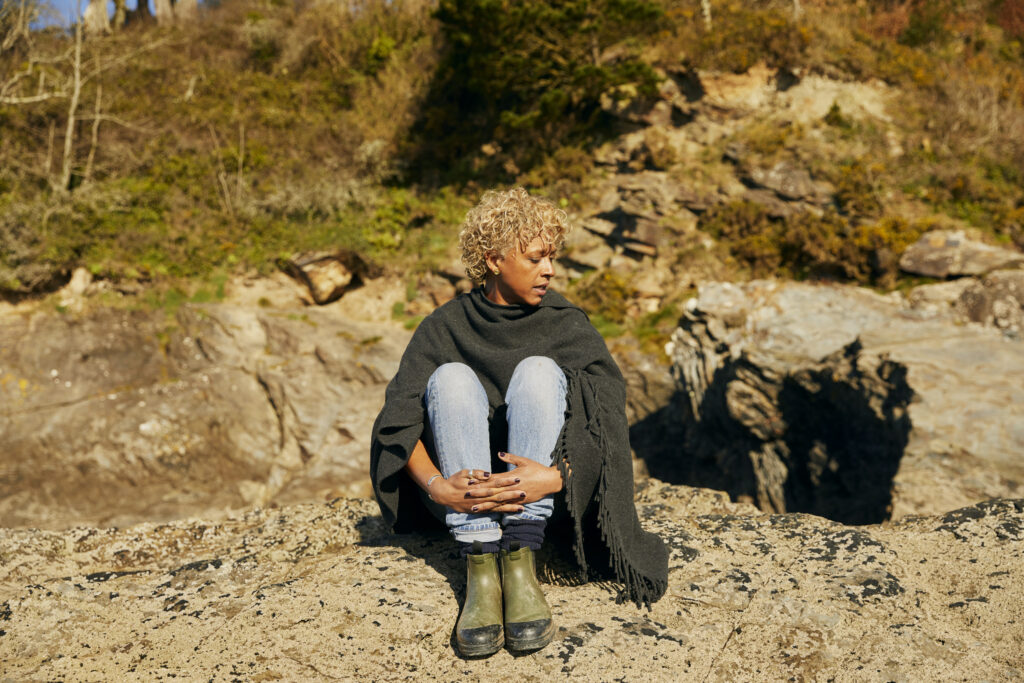
To this day Gillian can still recall the exact textures, smells and tastes of a local tree she grew up exploring: “I can remember what the bark felt like, what it smelt like, what the seed casing felt like when I scratched it … I knew that tree. I could conjure its image instantly, though I never knew it by any other name than the monkey nut tree.”
This tactile knowledge so ingrained in her memory sits in contrast to the book-led education she obtained as an adult in Britain where she studied Biology at the University of Bristol. “I can tell you what a hazel leaf looks like with its toothed edges. I can describe the lobed English oak leaf but I have to pause to think and the images I recall aren’t lived experiences but rather pictures gleaned from field guides and books. I have no idea what it feels like to climb an oak tree in the way I know exactly what it feels like to climb the monkey nut tree of my childhood in Kenya. It feels like everything I’ve learned about British wildlife is the same way I learned a second language.”
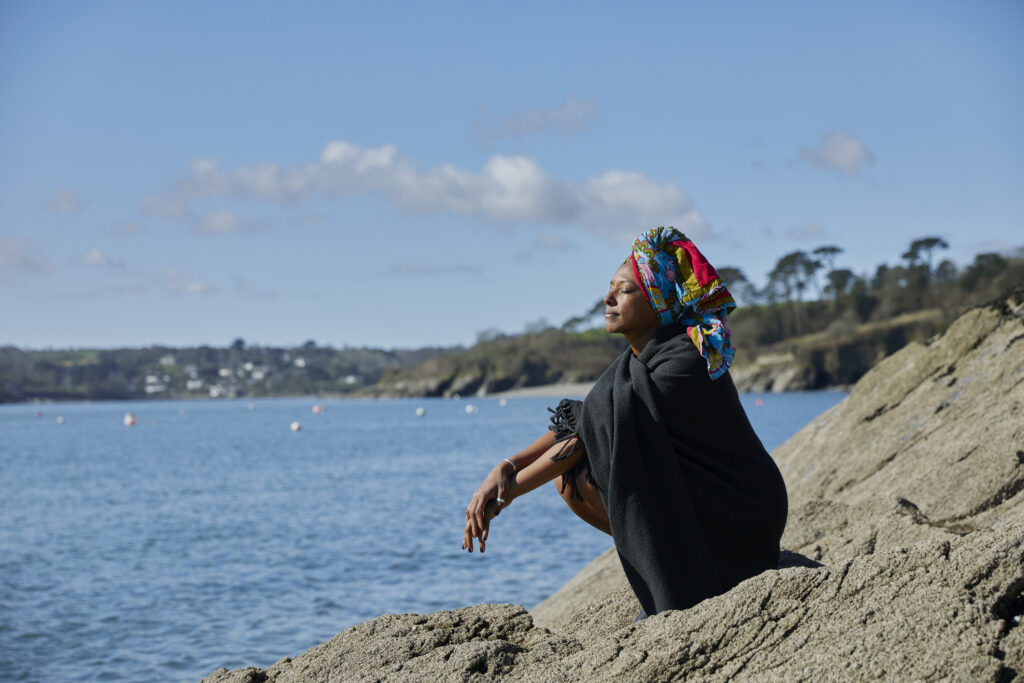
After Gillian’s swim, we sit quietly, listening to the hypnotic rhythm of the pebbles being rolled back and forth by the undertow as the tide slowly comes in. Gillian enjoys the quiet solitude of the outdoors which allows her to commune with the non-human world. “Being able to get a bit hippie with it, having a conversation with the sea … there’s a kind of presence there and it’s ok to acknowledge that and to receive whatever that is giving.” Although a loner at heart, she loves exploring nature with children: “One of the nicest things is to be with a group of children, leading them to an experience and seeing that joy. You can’t beat that.”
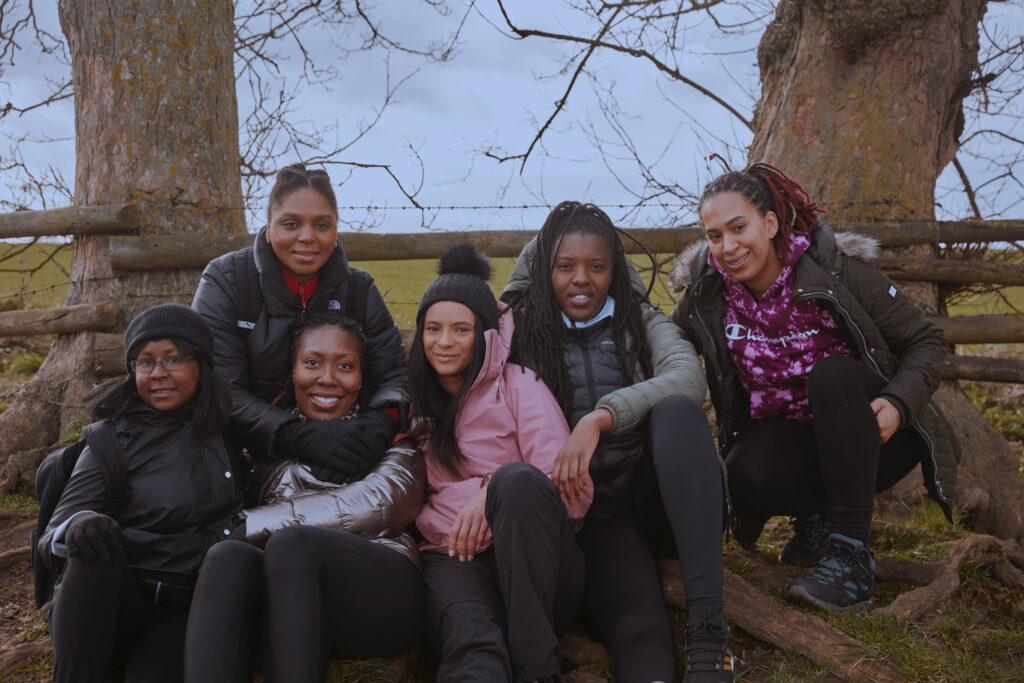
The notion of joy in nature resonates with Cherelle Harding. I meet her in a country park in the Midlands, where she and a group of women are dancing across the open landscape listening to reggae music playing from a phone.
Cherelle is a youth worker from Coventry who also plays in the soundsystem Sisters In Dub. Her joy is infectious as she spins and sways. “I have to say Rastafarianism and reggae music definitely played a big part in my connection to nature. Rastafarianism is centred around nature and appreciating the world around us. A lot of reggae music talks about centralising Mother Earth. When I was younger, I would listen to the likes of Chronixx and Jah9 and I would often see images of black people and women with locs in nature and I was really really inspired by that.”
Cherelle’s first encounters with the outdoors came in her teens, when she was given the opportunity to try rock climbing on a school trip. “The outdoors wasn’t something I grew up knowing much about but it was something that made me feel at peace and brought me feelings that I didn’t get from anywhere else,” she explains.
“The outdoors wasn’t something I grew up knowing much about but it was something that made me feel at peace and brought me feelings that I didn’t get from anywhere else”
Cherelle Harding
“I remember having my first ‘wow’ moment on the top of a mountain in Wales, thinking this hiking stuff is OK, so after I passed my driving test, I was able to go on adventures further afield, looking for green areas on Google Maps.” Cherelle founded Steppers in July 2020 as England was under its first lockdown. “The outdoors was where I found solace but I’d rarely see people who looked like me when I was out and about and I wanted to create a space where black and brown people could feel comfortable to explore the outdoors without any pre-judgement,” she says.
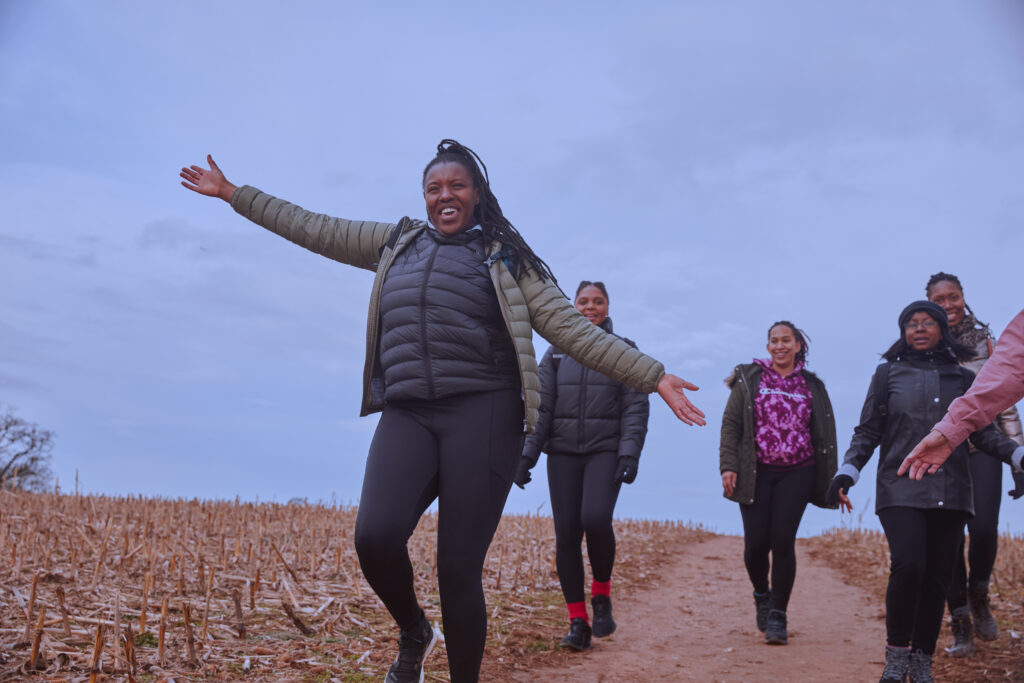
“This was during a period where a lot of people were suffering from poor mental health, myself included, and I found that it was made worse by the rise of the BLM movement. There was a constant onslaught of online trauma which still exists today and it became really important for me to create a space where people could detach and just find joy.”
The women who’ve joined today’s walk have come from different parts of the country. At ease in each other’s company, their personalities vary from quiet introverts to outgoing and chatty. It’s impossible not to feel invigorated by the energy which exudes from the group as they dance, sing and laugh through the countryside.
“Being outdoors allows you to release your inner child. I think as adults we sometimes forget how to have fun so when we’re outdoors, I always try to do some kind of childlike activity like kite-flying, feeding the ducks, playing music or dancing. There are so many restraints in society for us to be and feel a certain way but when you’re walking with Steppers you can really be yourself.”
Cherelle leads the walk with a gentle hand, consulting a map along the way to show the group where we are. At the end of the group walk, everyone falls into a spontaneous group hug in the car park before heading their separate ways.
Both Cherelle and Gillian are aware of the gatekeeping that exists in outdoor spaces. “I hear people saying how ‘some people’ don’t know how to use the countryside and they’re referring to anyone who doesn’t conform to the rural English code of conduct where you know not to gather in groups, have cook-outs or parties,” says Gillian. “There’s almost a uniform to go with it: a pair of binoculars, a field guide and some tech gear in subdued tones.”
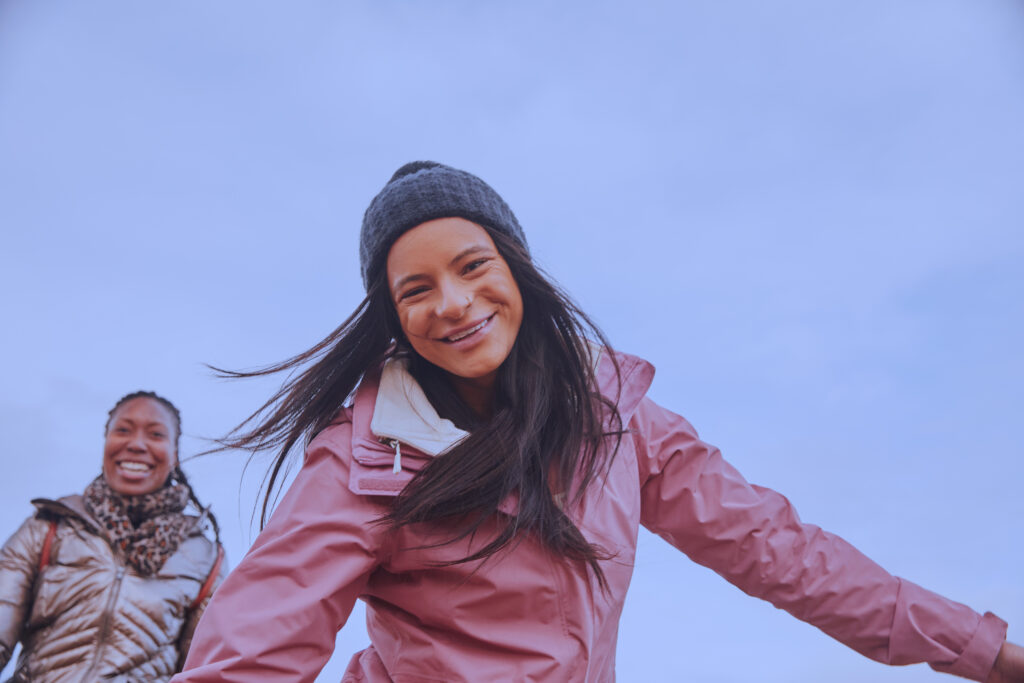
Cherelle believes there are many barriers stopping people from connecting to nature. “Some people don’t know how to, or it’s not a priority. Access is an issue too; if you live in the middle of a city and don’t have a car, it’s difficult to get to the Lake District. Finances can be a bit of a barrier for some people, outdoor equipment isn’t cheap and it doesn’t make sense if you’re struggling financially to pay £200 for a pair of walking boots when there are other things that need to be paid for. However, not all black and brown people are struggling financially of course. I think it’s just about lack of exposure and lack of representation. If you don’t see it, you don’t feel you can be it.”
Cherelle is keen to introduce other people to the freedom she’s found in the outdoors. She describes walking outside as therapy. She suggests that people who are new to the outdoors start locally. “Connection to nature can just be looking out of your window, watching the sunrise, the birds, growing food on your window sill, or going out on walks in your local area and joining groups like Steppers.”
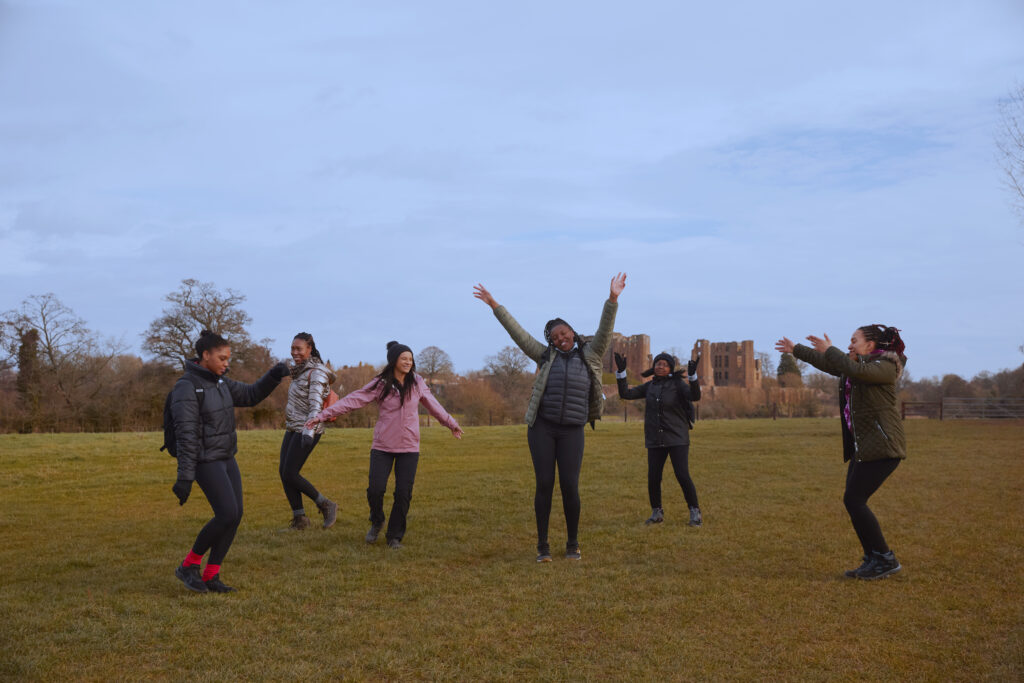
Like what you’re reading? Our groundbreaking journalism relies on the crucial support of a community of gal-dem members. We would not be able to continue to hold truth to power in this industry without them, and you can support us from £5 per month – less than a weekly coffee.
Our members get exclusive access to events, discounts from independent brands, newsletters from our editors, quarterly gifts, print magazines, and so much more!

